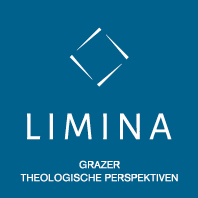LIMINA - Theological perspectives from Graz is the scientific open-access journal of the Faculty of Catholic Theology at the University of Graz. The thematic focus of LIMINA is on current transformation processes and is oriented towards the following questions: What are the socially, culturally, politically, religiously and ecclesiastically most challenging changes and upheavals of the present? How can these be addressed from a theological perspective? In what way do they require innovative methodological and interdisciplinary approaches? How do these changes and conflicts transform theology itself?
Vol. 8 No. 2 (2025): Peace in Times of Political and Moral Uncertainty
Following the current ecological, political, miliary, social as well as technological developments, our understanding of peace also requires constant rearticulation. While the concept of peace is entangled with certain religious and political roots, it also needs to ideas adapt in order to meet new realities and changes. At the same time, these processes are caught between idealistic concepts of peace, such as positive peace or liberal peace, on the one hand, and the realistic possibilities and limitations of distinct and practically feasible peace practices on the other hand.
LIMINA addresses these issues from the perspectives of theology, political science, the humanities, and peace studies.
Published:
2025-11-14
View All Issues


